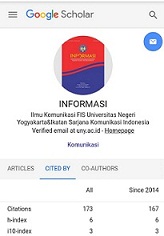Visual Persuasion: Assessing the Influence of Political Posters on Voter Behavior of Bangladesh
Abstract
Political posters play a significant role in shaping voter perceptions and behaviors in Bangladesh, employing visual elements such as color, design, and symbolism to effectively communicate messages and resonate emotionally with diverse electorate groups. This study investigates the influence of these posters on voter behavior toward political candidates and parties, drawing on established theoretical frameworks like the Elaboration Likelihood Model (ELM). Through a survey-based approach, our findings reveal that posters exert substantial influence, with a majority of respondents acknowledging their role in shaping political opinions. Emotional appeals embedded in posters are shown to sway voter decisions, emphasizing the posters' effectiveness in engaging voters through both central and peripheral routes of persuasion. Moreover, the study highlights posters' enduring impact beyond elections, contributing to sustained political attitudes and fostering democratic engagement in Bangladesh's socio-political landscape. By aligning with existing literature on visual persuasion and political communication, this research underscores the critical role of posters as powerful tools in influencing public opinion and promoting civic participation.
Keywords: political poster, persuasion, voter behavior, Bangladesh, civic participation
Downloads
Published
How to Cite
Issue
Section
Citation Check
License
Copyright (c) 2025 Md Forhad Uddin, Tabassum Nuha, Mohammad Belal, Maliha Tabassum

This work is licensed under a Creative Commons Attribution-NonCommercial 4.0 International License.
Authors who publish with this journal agree to the following terms:
- Authors retain copyright and grant the journal right of first publication with the work simultaneously licensed under a Creative Commons Attribution License that allows others to share the work with an acknowledgement of the work's authorship and initial publication in this journal.
- Authors are able to enter into separate, additional contractual arrangements for the non-exclusive distribution of the journal's published version of the work (e.g., post it to an institutional repository or publish it in a book), with an acknowledgement of its initial publication in this journal.
- Authors are permitted and encouraged to post their work online (e.g., in institutional repositories or on their website) prior to and during the submission process, as it can lead to productive exchanges, as well as earlier and greater citation of published work (See The Effect of Open Access).











